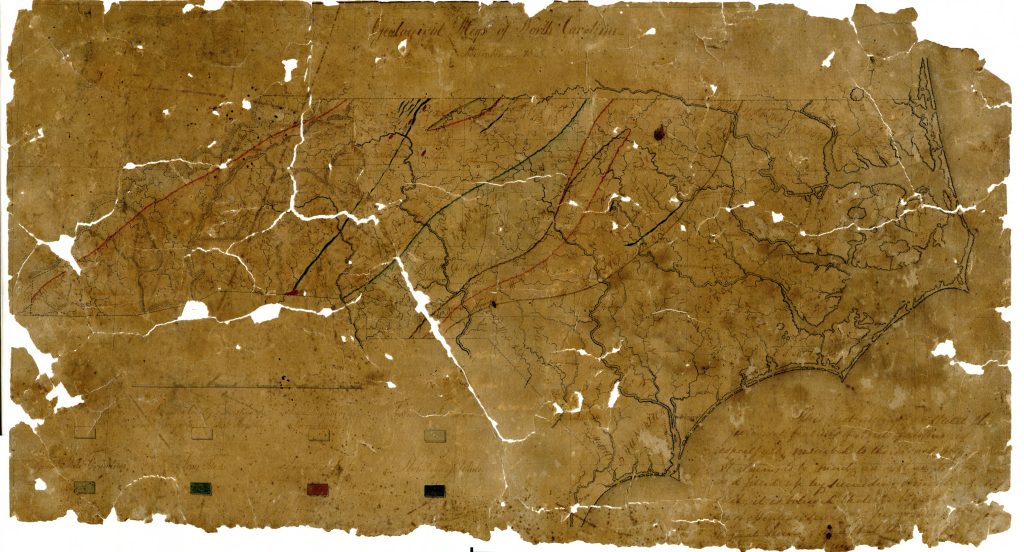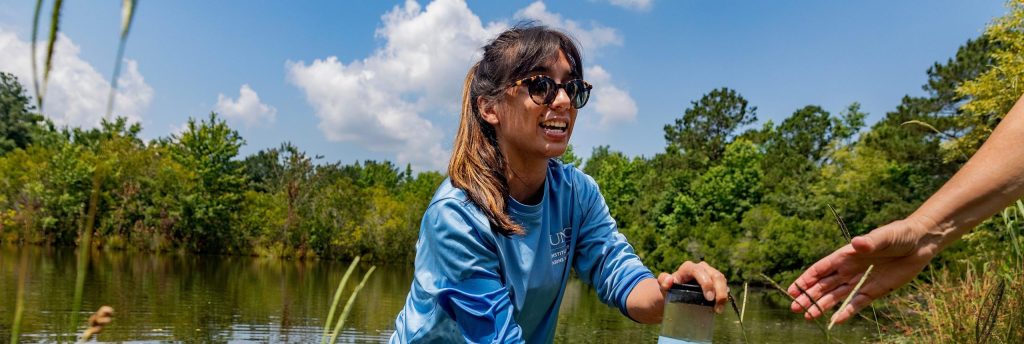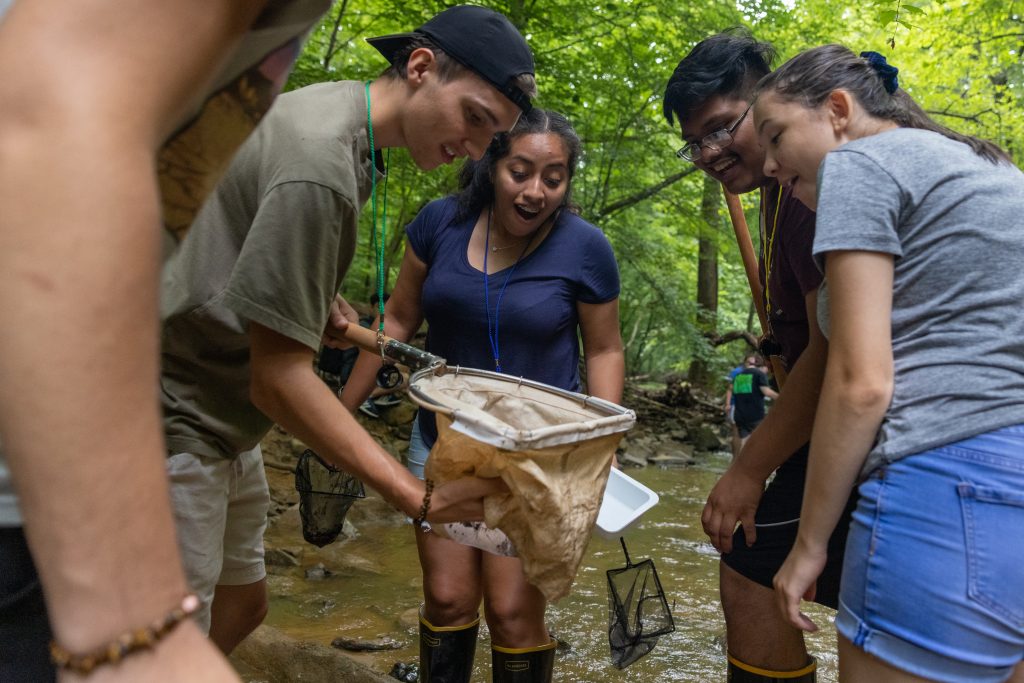About
Letter from Our Director
 Welcome to the UNC Institute for the Environment (IE). IE fosters and conducts collaborations with faculty, students and staff across the university to identify and solve the world’s environmental challenges and sustain and improve the environment.
Welcome to the UNC Institute for the Environment (IE). IE fosters and conducts collaborations with faculty, students and staff across the university to identify and solve the world’s environmental challenges and sustain and improve the environment.
At IE, we develop multidisciplinary collaborations to understand major environmental issues and engage myriad academic disciplines, public and private partners, and an informed and committed community. Through IE’s air and water research centers, our community engagement and sustainability initiatives, and field sites and experiential education programs, we provide interdisciplinary forums for faculty, students and community partners to meet pressing environmental challenges.
Carolina has outstanding environmental faculty conducting research and teaching in a broad range of disciplines throughout the university. We also have incredibly talented and motivated undergraduate and graduate students. IE helps provide students with the tools, experience and opportunities to take the study and understanding of the environment to the next level. Learn more about Carolina’s environmental programs.
I am extremely excited to lead IE and build on its tremendous accomplishments. It is an important time for environment at Carolina and I look forward to helping harness our broad and deep environmental expertise to accomplish great things for North Carolina and beyond.
Michael F. Piehler
Director, UNC Institute for the Environment
Mission
Our Vision
Become a global leader in catalyzing innovative environmental research and harnessing the research output to educate tomorrow’s leaders, engage communities and meet environmental, energy and development challenges.
Our Mission
Enhance environmental capacity across the university and beyond by nurturing a multi-disciplinary community of scholars and stakeholders that enhances collaboration, increases sharing of knowledge, and identifies solutions to the world’s critical environmental problems.
Work in partnership across UNC and with external partners to coordinate and deliver 21st-century educational programs that provide students with the experience and skills to thrive in a growing global economy.
Apply environmental knowledge to develop just solutions in North Carolina and the world beyond.
Commitment to Diversity and Inclusion
The UNC Institute for the Environment is committed to building diversity within our organization and within our disciplines. We recognize that diversity in gender, ethnicity, race, class, sexual orientation, national origin, ability and age strengthens any group. We know that environmental challenges and solutions do not affect people equally. We value the knowledge and resources that all communities bring to understanding and sustaining the environment. We offer an environmental justice graduate research scholarship annually.
History

The University of North Carolina at Chapel Hill has a long and distinguished tradition of environmental research, dating back 200 years. It began with Professors Denison Olmsted and Elisha Mitchell, who helped found natural science programs at Carolina and prepared the nation’s first geological survey. The scope of environmental study here has expanded considerably over time. A major addition to the campus came in the 1920s with the development of a program in sanitary engineering that eventually formed the core of one of the nation’s first truly interdisciplinary departments of Environmental Sciences and Engineering, now located in the School of Public Health.
Today, there are programs throughout the campus, covering literally every aspect of environmental study. The UNC Institute for the Environment helps these individual departments and centers join together in interdisciplinary research, education and engagement, and creates new areas of study in response to some of our most pressing environmental challenges.
Our society faces serious environmental challenges. Global warming is gaining recognition as the most serious issue of our time, impacting literally every part of the earth’s system. It, in turn, is linked to the burning of carbon-based fuels to produce our electricity, power our transportation systems, and heat and cool our homes and other buildings. And the availability of cheap fossil-fuel energy has had a dramatic, and unsustainable, impact on the design of our structures and our communities.
Our lifestyles also impact our health, and the health of the environment around us. Our transportation systems and power plants send particulates and other pollutants into the environment. Our parking lots, lawns, farms, golf courses and other sources pollute our streams, rivers and waterways.
The old environmental solutions — command and control regulation of specific pollutants and point sources — will not solve these problems. Every one of us is partially responsible for these challenges — and every one of us must play a role in solving them.
The UNC Institute for the Environment is leading UNC’s world-renowned environmental community in developing solutions to these critical challenges. In doing so, it educates future environmental leaders and engages with the people of North Carolina and the nation to address and solve environmental challenges.
Contact Us
123 W. Franklin Street
Suite #330B
Chapel Hill, NC 27516
Phone: (919) 966-9922
Email: ie@unc.edu
Campus Box: 1105
Visit the Institute
We’ve moved! The UNC Institute for the Environment recently moved its headquarters from the Europa Center, an off-campus office building, to Carolina Square on UNC’s iconic Franklin Street. The move will put us closer to campus and in closer proximity to students, research partners and the town of Chapel Hill, allowing us to better serve our mission and connect ideas, people and programs.
The Institute is now housed on the third floor of Carolina Square. The physical address is 123 W. Franklin Street, Chapel Hill, NC 27516.
Parking is available in the attached public parking deck. Visitors may park in an hourly parking spot on the first or second floors. The first 45 minutes are free, the second 45 minutes are $2 and every subsequent hour is $5 per hour. Electric vehicle charging stations are available.
Contact Stephanie Villaneuva, administrative support associate, for information on visiting the Institute.


